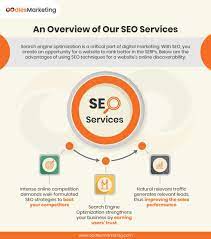The Cost of Internet Advertising: What You Need to Know
Internet advertising has become a crucial component of any business’s marketing strategy in today’s digital age. However, one of the most common concerns for businesses looking to advertise online is the cost involved. Understanding the factors that influence internet advertising costs can help you make informed decisions and maximise your return on investment.
Factors Affecting Internet Advertising Costs
Several factors can influence the cost of internet advertising:
- Ad Format: Different ad formats, such as display ads, search ads, video ads, and social media ads, have varying costs associated with them based on their effectiveness and reach.
- Ad Placement: The placement of your ads on websites or search engine results pages can impact costs. Ads placed on high-traffic websites or at the top of search results typically cost more.
- Target Audience: The specificity and size of your target audience can affect costs. Targeting a niche audience may be more expensive but can result in higher conversion rates.
- Bidding Strategy: For platforms that use a bidding system, such as pay-per-click advertising, your bidding strategy can influence costs. Bidding higher may increase visibility but also raise costs.
- Campaign Objectives: Your advertising goals, whether brand awareness, lead generation, or sales, can impact costs. Some objectives may require higher investments to achieve desired outcomes.
Tips for Managing Internet Advertising Costs
To make the most of your internet advertising budget, consider the following tips:
- Set Clear Goals: Define clear objectives for your campaigns to ensure you allocate resources effectively and measure success accurately.
- Monitor Performance: Regularly track key performance indicators (KPIs) to assess the effectiveness of your campaigns and make adjustments as needed to optimise results.
- Test and Iterate: Experiment with different ad formats, targeting options, and messaging to identify what works best for your target audience and refine your strategies accordingly.
- Budget Wisely: Allocate budgets based on campaign objectives and expected returns. Consider starting with smaller budgets and scaling up as you gather data on performance.
In conclusion, understanding the factors that influence internet advertising costs and implementing effective strategies to manage those costs are essential for achieving success in online marketing. By carefully planning your campaigns, monitoring performance metrics, and optimising your strategies over time, you can maximise the impact of your internet advertising efforts within your budget constraints.
Maximising Value: Seven Advantages of Internet Advertising Costs
- Cost-Effective
- Targeted Reach
- Measurable Results
- Flexibility
- Global Reach
- Brand Visibility
- Conversion Tracking
Challenges of Internet Advertising Costs: Navigating Uncertainty, Fraud, and Competition
Cost-Effective
Internet advertising provides a cost-effective solution for businesses seeking to promote their products or services, offering a more budget-friendly alternative to traditional advertising channels. With internet advertising, businesses can reach a wider audience at a fraction of the cost associated with traditional methods such as print or television ads. This affordability allows businesses of all sizes to leverage the power of online marketing to increase brand awareness, drive traffic, and generate leads without breaking the bank.
Targeted Reach
One significant advantage of internet advertising cost is its targeted reach capability, which enables businesses to focus their marketing efforts on specific audiences defined by demographics, interests, and online behaviour. By utilising targeted advertising strategies, businesses can tailor their messages to resonate with a particular segment of the online population, increasing the likelihood of engaging with potential customers who are more likely to be interested in their products or services. This precision in targeting not only enhances the effectiveness of marketing campaigns but also optimises budget allocation by reaching those most likely to convert, ultimately improving the return on investment for businesses.
Measurable Results
One significant advantage of internet advertising cost is its ability to deliver measurable results. By providing detailed analytics and metrics, businesses can track the performance of their ad campaigns in real-time. This level of insight allows advertisers to monitor key performance indicators, such as click-through rates, conversions, and return on investment, enabling them to make data-driven decisions to optimise their marketing strategies effectively. The ability to measure the impact of online advertising campaigns in such detail sets internet advertising apart from traditional forms of marketing, offering businesses valuable insights into the effectiveness of their digital campaigns.
Flexibility
Internet advertising cost offers a significant advantage in terms of flexibility by providing businesses with the ability to allocate their budget dynamically. This flexibility enables companies to adjust their spending based on the performance of their campaigns in real-time. By closely monitoring key metrics and outcomes, businesses can optimise their budget allocation to focus on strategies that yield the best results, ultimately maximising the effectiveness of their advertising efforts.
Global Reach
Internet advertising offers the significant advantage of global reach, allowing businesses to connect with a vast and diverse audience worldwide without being constrained by geographical boundaries. This unparalleled reach means that businesses can promote their products or services to potential customers in different countries and regions, expanding their market presence and opportunities for growth on a global scale. By leveraging internet advertising, businesses can transcend traditional limitations and tap into new markets, driving brand awareness and engagement across borders.
Brand Visibility
Internet advertising cost offers the significant advantage of enhancing brand visibility and awareness by establishing a strong online presence across a variety of platforms. By strategically placing ads and engaging with target audiences through digital channels, businesses can effectively increase their brand’s visibility, ensuring that it remains at the forefront of consumers’ minds. This heightened exposure not only helps in reaching a wider audience but also reinforces brand recognition and credibility, ultimately driving customer engagement and loyalty.
Conversion Tracking
Conversion tracking is a significant advantage of internet advertising cost as it enables businesses to monitor and measure their conversions and return on investment (ROI) effectively. By tracking conversions, businesses can gain valuable insights into the success of their advertising campaigns and understand how each marketing effort contributes to their bottom line. This data-driven approach not only helps in evaluating the effectiveness of ad strategies but also allows businesses to make informed decisions to optimise their advertising spend for better results.
1. Cost Uncertainty
Cost Uncertainty is a significant con of internet advertising, as the unpredictability of costs can pose challenges for businesses trying to budget effectively. With fluctuating ad prices influenced by various factors such as ad format, placement, and competition, it can be hard to anticipate and control expenses. This uncertainty may lead to difficulties in allocating resources efficiently and may require constant monitoring and adjustments to stay within budget constraints. Businesses must carefully consider this aspect of internet advertising to mitigate the risks associated with cost unpredictability and ensure a more stable financial planning process.
2. Ad Fraud
Ad Fraud poses a significant con of internet advertising cost, as it introduces the risk of fraudulent activities that can undermine the effectiveness of online campaigns. The prevalence of ad fraud, including click farms, bot traffic, and fake impressions, can lead to wasted advertising budgets and ultimately diminish the return on investment for businesses. By artificially inflating metrics such as clicks and impressions, ad fraud not only distorts campaign performance data but also hampers the ability to accurately assess the impact of online advertising efforts. Businesses must remain vigilant and implement measures to combat ad fraud to safeguard their marketing investments and ensure optimal outcomes from their online advertising initiatives.
3. Ad Blocking
The con of ad blocking poses a significant challenge to internet advertising costs. With the widespread use of ad-blocking software, online ads face reduced visibility and effectiveness, ultimately impacting their cost-effectiveness. As users increasingly opt to block ads while browsing the web, advertisers struggle to reach their target audience and achieve desired outcomes, leading to a decrease in the return on investment for online advertising campaigns. Advertisers must navigate this obstacle by exploring alternative advertising strategies and adapting their approaches to engage audiences effectively despite the prevalence of ad blockers.
4. Competition
High competition for ad space is a significant drawback of internet advertising costs. When multiple businesses vie for the same advertising space on popular platforms or during peak times, the demand increases, subsequently driving up the costs. This intense competition can make it challenging for businesses with limited budgets to secure prominent ad placements and reach their target audience effectively. As a result, businesses may need to strategize carefully and consider alternative advertising approaches to navigate the competitive landscape and optimise their marketing expenditure.
5. Click Fraud
Click fraud is a significant con of internet advertising cost, as it involves the generation of artificial clicks on ads rather than genuine user interactions. This fraudulent activity can lead to inflated advertising costs for businesses without providing any real engagement or value. Click fraud not only wastes advertising budgets but also distorts campaign performance metrics, making it challenging for businesses to accurately assess the effectiveness of their online marketing efforts. Preventing and detecting click fraud is crucial for maintaining the integrity and efficiency of internet advertising campaigns.
6. Ad Fatigue
Ad fatigue is a significant drawback of internet advertising cost. When audiences are repeatedly exposed to the same ads, they can experience ad fatigue, causing a decline in engagement and responsiveness to the campaign. This phenomenon not only diminishes the effectiveness of the advertising efforts but can also result in increased costs per conversion as the audience becomes less receptive to the message. Marketers need to carefully manage ad frequency and rotation to avoid ad fatigue and maintain audience interest and engagement for successful campaigns.



